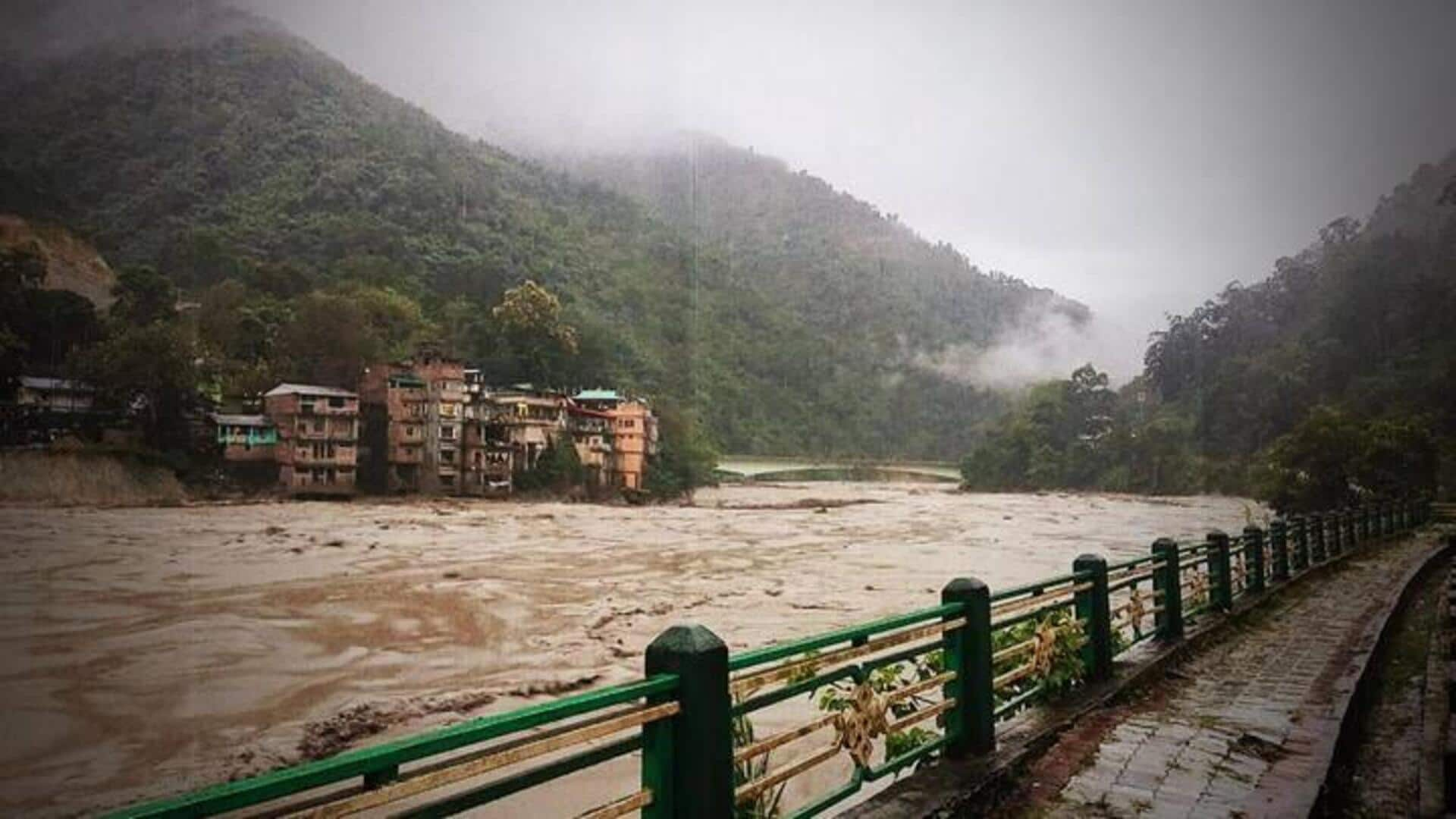
300 families evacuated in Sikkim as land sinks toward river
What's the story
Nearly 300 families were forced to evacuate from the Mangan district in Sikkim after multiple buildings collapsed due to land subsidence toward the Teesta River, PTI reported on Friday. Nim Tshering Lepcha, a victim and Local Representative of Naga Village, has called for immediate intervention from the Indian government, saying, "It does not only concern the general public, but also is a threat of national security."
Government action
Urgent call for government intervention and restoration
Lepcha said that it has been 11 months since the glacial lake outburst flood in 2023 but there's no improvement. "The Government of India should also take up this matter seriously as this is a border road," he added. While displaced families have been given temporary settlements, Lepcha believes that these efforts are insufficient. ""The temporary shelters are not a long-term solution," he said, adding, "The government must prioritize permanent rehabilitation for the affected families."
GLOF risk
GLOF threat looms over Himalayan state
The South Lhonak Lake in North Sikkim breached on the night of October 3, 2023, following continuous rainfall, resulting in a Glacial Lake Outburst Flood (GLOF). The GLOF destroyed the 1,200 MW Teesta III dam, Sikkim's largest hydroelectric project, located around 60 kilometers downstream, causing destruction in downstream areas and villages. According to Sphere India's preliminary assessment report, 88,400 people were directly affected, with 40 dead, 76 missing, 33 bridges, two government buildings, and 16 roads and highways damaged.
Exposure risk
Global assessment reveals GLOF exposure risk
In February 2023, an international team of scientists led by Newcastle University in the United Kingdom conducted the first global assessment of areas at risk from GLOFs. Their study, published in Nature Communications, revealed that India and Pakistan account for one-third of the global population exposed to GLOFs. The research also indicated that the risk to populations increases with their proximity to a glacial lake.